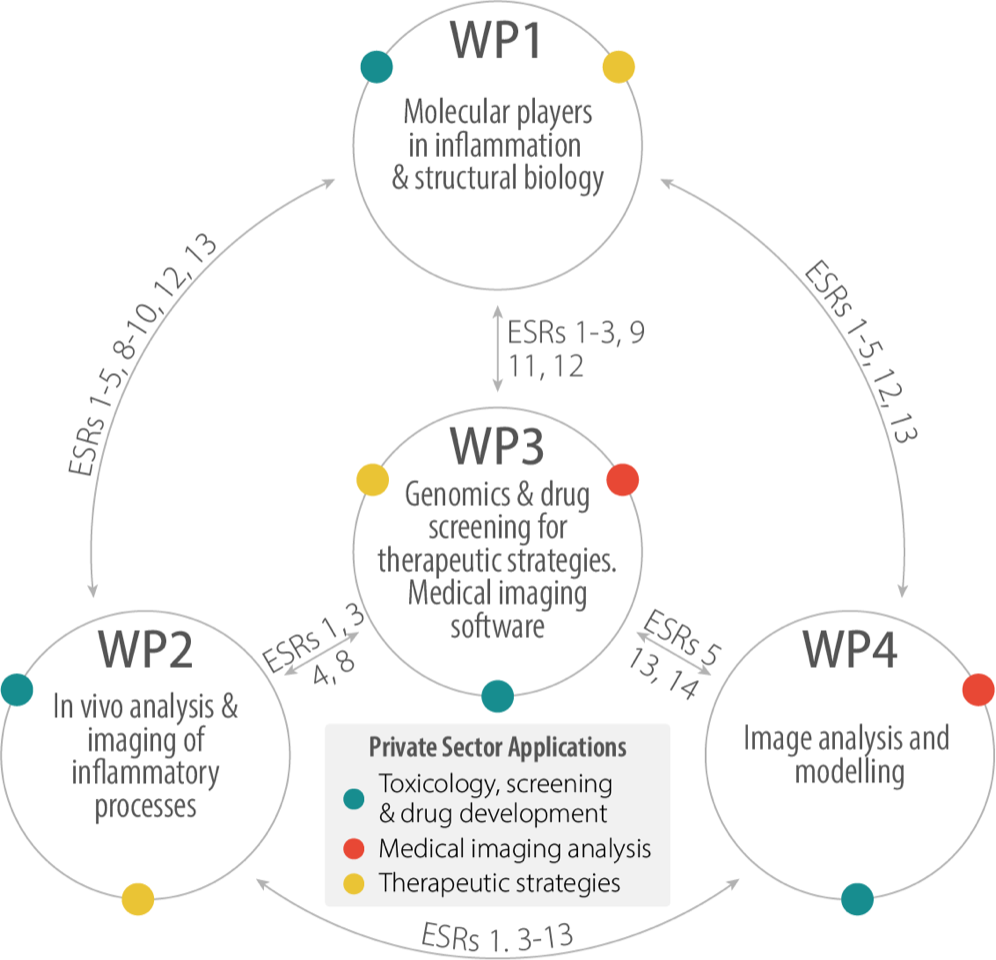With four interactive research work packages INFLANET aims to bring major improvements at the level of the main bottlenecks in the field of vertebrate inflammation.

WP1: Molecular Players in inflammation
From structural biology to generation of mutants through the inflammasome, the main molecular inflammatory hub. Inflammation is the complex output of an entire process that starts with the detection of danger signals, proceeds with the integration through central multiprotein complexes, the inflammasomes, and is then propagated to either the local environment or throughout the body. The aim of this work package is to study the molecular basis of these three steps (initiation, integration and propagation), and to provide the necessary insight to generate the relevant mutants to study these three steps in animal models.
WP2: In vivo analysis of inflammatory responses
We will develop new models to shift from imaging of inflammatory processes, to imaging in vivo physiology of inflammation in cancer, wound healing and infections. By implementing state of the art multispectral, multiphoton and multimodal microscopy, we will integrate and cross-reference data from multiple models in both zebrafish and mouse. This will feed WP4 for computational in silico models. We hypothesize that transition from acute to chronic inflammation is mediated by specific molecular actors, which must be identified if they are to be targeted therapeutically. While mouse models are certainly relevant for major human inflammatory pathologies, ethical considerations limit their development, diversification and use on an industrial and/or a scale useful for screening. The mouse and zebrafish models in INFLANET thus complement each other. While irrelevant for zebrafish, where gender is not yet determined at the larval stages, the gender of mice under study will be recorded in order to discover any possible expected gender bias
WP3: Genomics and drug screening to inform therapeutic strategies
Given the clinical importance of inflammatory diseases, WP3 is the central WP. While these diseases affect females and males equally, we will of course be mindful of any possible gender issues. Physicians within INFLANET have extensive links to a variety of patient groups. The needs and opinions of patients are fundamental to the direction of this clinically oriented research WP, and will inform the work included in this proposal more generally.
WP4: Analysis and modelling
This WP is devoted to the development of mathematical and computational methods for extraction, analysis and modelling of cell behaviour from 3D+time videos (4D datasets) of inflammatory processes. The challenges here include: segmentation of kinetically variable shapes of macrophages and neutrophils, extraction of individual cell trajectories and their relation to inflammatory chemotactic signals and cell-cell contacts between neutrophils/macrophages and stromal cells.